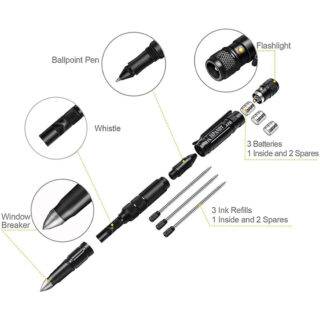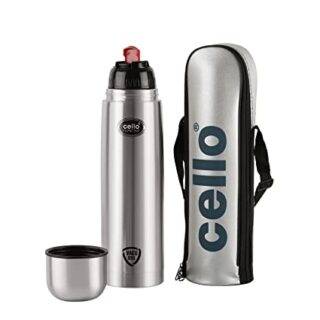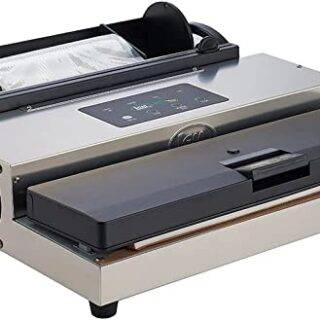Table of Contents
ToggleIntroduction
Air compressors are vital instruments in many industries. They create and store compressed air for pneumatic tools, machinery, and equipment. Air compressors may be gas- or electric-powered. Gasoline or diesel engines power gas air compressors. Electric motors power electric air compressors. Each kind has pros and downsides, making choosing vital for best performance and efficiency.
This article compares gas and electric air compressors. We’ll explain each type’s merits and downsides and help you choose the correct compressor for your application. We’ll also explore industry trends and developments, illuminating air compressors’ future. By the conclusion of this essay, you will understand gas and electric air compressors well enough to choose the best one for your requirements. Let’s learn about these crucial instruments that advance industry.
Gas Air Compressors: Power And Mobility
Gas air compressors use engine power to compress air. These powerful, mobile devices are utilized in many sectors.
Gas-Air Compressor Operation
Internal combustion engines compress gas air. The engine turns gasoline or diesel fuel into mechanical energy. The compressor unit uses this mechanical energy to compress.
Gas Compressor Benefits:
1. Powerful And Efficient:
Gas air compressors may power heavy-duty applications. They can handle high-pressure pneumatic tools and equipment. Gas compressors are portable since they don’t need electricity. They may be carried to distant, construction, or outdoor work sites without power.
Gas air compressors work well in rural or off-grid locations without power. They provide compressed air reliably, allowing work in difficult conditions.
2. Gas Compressor Drawbacks:
Gas compressors are noisier than electric ones. Engine activity and combustion make noise. Gas air compressors release exhaust gases that may need ventilation or environmental compliance.
3. Fuel And Maintenance Costs:
Gas air compressors use gasoline or diesel for fuel. Fuel price and use affect operating costs. Oil changes and engine tune-ups provide maximum performance and lifespan.
4. Gas Compressors Pollute The Air:
Gas compressors still emit more than electric ones, even though engine technology has increased efficiency and lowered pollution. Gas air compressors are versatile and powerful. When choosing a compressor, consider noise, emissions, and maintenance expenses.
Electric Air Compressors: Efficiency And Clean Energy
Electric air compressors are efficient and use clean energy. Electric compressors are good for many applications.
1. Electric Compressors Work:
- Electric motors power air compressors. The compressor unit uses mechanical energy from the motors. The compression mechanism pressurizes air to deliver compressed air for different activities.
- Energy-Efficiency And Cost-Effectiveness: Electric compressors turn more electricity into compressed air. Their efficiency reduces energy usage and operational expenses, making them cost-effective.
- Gas compressors are louder than electric ones. They are quiet enough for indoor use. Electric compressors emit no exhaust, improving air quality. Electric compressors are great for interior usage since they don’t emit toxic pollutants. They function securely in confined locations without ventilation. Environmentally sensitive places prefer electric compressors to reduce pollutants.
2. Electric Compressor Drawbacks:
- Limitations And Electricity Dependence: Electric compressors need reliable power. Operating electric compressors in places with unpredictable power may be difficult. Power constraints might limit the compressor’s utilization.
- Electric compressors are power-dependent, limiting their mobility. Workshops and factories with electricity utilize them. Electric compressors may not work at distant or powerless building sites. Electric compressors need electricity connections and infrastructure to operate. Power outlets, electrical capacity, and adequate wiring are needed. Electric compressors need setup and electrical system changes.
- Electric air compressors surpass gas compressors in efficiency, noise, and cleanliness. Their applicability relies on power supply reliability and application needs. Electric compressors may be ideal for your compressed air demands depending on power limits, mobility needs, and infrastructure.
Choosing The Right Air Compressor For The Job
To guarantee your air compressor fulfills your needs, you must examine several things. These factors will help you choose a gas or electric compressor.
- Power And Pressure Requirements: Calculate your power and pressure requirements. Make sure the compressor can power your tools, machinery, and equipment.
- Duration And Frequency Of Use: Assess the compressor’s use. A compressor with a high duty cycle and efficient cooling system is needed for continuous usage. Consider your applications’ needs. Electric compressors are good for interior compressed air since they are quiet and emission-free. Gas compressors are portable for outdoor or distant applications.
- Noise And Environmental Regulations: Know the rules in your workplace. Ensure the compressor meets noise and emissions guidelines. Compare compressor models’ power outputs and efficiency ratings. Choose a compressor based on performance criteria like CFM and PSI.
- Analyze compressor noise and emissions. Think about the workplace and regulations. Electric compressors are ideal for noise-sensitive regions and environmentally concerned activities due to their low noise and emission levels. Assess each compressor’s long-term maintenance and operating expenses. Consider electric and gas compressor fuel costs. Check filter, lubrication, and regular maintenance expenses.
- Real-World Examples
- Examine industry-related case studies. Compare gas and electric compressors in comparable applications. Examine their performance, efficiency, and application-specific benefits and drawbacks. This might help you choose which compressor type is best for your needs.
- You may pick the finest air compressor for your requirements by carefully evaluating these aspects, comparing performance measurements, and studying real-world applications. An educated choice will optimize performance, efficiency, and productivity in your operations.
Future Trends And Innovations
Air compressors are continually improving, determining their future. Trends and technology that increase gas and electric air compressor performance, efficiency, and sustainability are always emerging.
- Gas Air Compressor Improvements Improved Engine Efficiency: Engine technology is improving gas air compressor fuel economy and pollution. Compressors may provide greater power with less fuel as engine designs improve.
- Emission Control And Environmental Compliance: To reduce air pollution, gas compressors are using emission control technology. To fulfill stricter environmental standards, exhaust systems, catalytic converters, and pollution monitoring systems are being upgraded.
- Gas air compressors are using propane and natural gas as alternative fuels. These fuels may minimize pollutants, fuel costs, and combustion efficiency. Flexible, fuel-adaptable compressors improve sustainability.
- Improved Battery Technology And Runtime: Battery technology benefits electric air compressors. Electric compressors can work without external power due to improved energy storage and runtimes. Portability and flexibility grow. Wireless and portable charging solutions for electric compressors are being researched. Portable charging stations make electric compressors more mobile and save downtime. Electric compressors are being linked with renewable energy sources like solar and wind power. By using renewable energy to power the compressors, this integration improves sustainability. Reduces carbon footprints and promotes environmental care.
- Improved performance, efficiency, and environmental sustainability drive these gas and electric air compressor developments and breakthroughs. These advances allow companies to use more powerful, efficient, and eco-friendly air compressors. Staying up to speed on technology is crucial when choosing air compressors. Air compressors will continue to be essential equipment since manufacturers are investing in R&D to fulfill industry demands.
Weather And Temperature Considerations
Consider how weather and temperature affect gas and electric air compressors before picking one. Gas air compressors can handle colder weather better. They have cold-weather engines that work well. In cold or severe climes, gas compressors are more dependable. Temperature extremes affect electric air compressors, especially at lower temperatures. Cold temperatures influence electrical components and compressor efficiency. Insulated power lines or compressor unit heating may be needed in extremely cold areas.
Electric compressors include safety mechanisms to prevent harm from temperature variations. To determine the electric compressor’s optimal temperature range, see the manufacturer’s instructions. Gas compressors may operate at lower temperatures. They are more flexible and durable in outdoor situations, building sites, and other adverse weather conditions.
Consider your area’s weather and the compressor’s temperature range while buying one. This will select the best solution for consistent performance and dependability regardless of temperature.
Backup Power Solutions
In cases of unpredictable power, air compressors need a solid backup power option. Backup power can keep gas and electric air compressors running.
Portable generators often power gas air compressors. When the electricity goes out, portable generators may power the compressor using gasoline or diesel. These generators can power the gas compressor in isolated areas or during power shortages.
Electric air compressors need backup power. Electric compressors may use UPS or battery backup power. During outages, battery packs may power the compressor until the main power source is restored. UPS systems, utilized for sensitive electronics, can keep the electric compressor working during power outages.
Backup power solutions must consider runtime and capacity. Check that the backup power option can power the air compressor for the necessary time. To guarantee dependability when required, backup power equipment should be regularly maintained and tested.
You can reduce downtime, preserve productivity, and prevent power outages by having a solid backup power system. To guarantee uninterrupted operation in any scenario, choose a backup power choice that matches your air compressor system’s needs.
Conclusion
Gas and electric air compressors both have pros and downsides. Gas air compressors are ideal for distant or off-grid applications due to their power and portability. Noise, pollution, and fuel expenses are negatives.
Electric air compressors are perfect for interior and ecologically sensitive regions since they are quiet, efficient, and emission-free. Despite power and mobility issues, they are more cost-effective over time.
Power, duration, application, noise, and environmental issues determine the best air compressor. To choose the right compressor, carefully consider these aspects.
Technology improves gas and electric air compressors. Engine technology, pollution control, and alternate fuels help gas compressors. Battery, wireless, and renewable energy technologies are improving electric compressors.
Consider each compressor’s performance, maintenance, noise, and environmental effect before choosing. Case studies may reveal its applicability.
Choosing an air compressor requires careful consideration of needs, benefits and downsides, and industry updates. You may maximize productivity, efficiency, and environmental responsibility by choosing wisely.
FAQ
Most frequent questions and answers
Gas air compressors are generally not recommended for indoor use due to the emissions they produce. The combustion of fuel in gas compressors releases exhaust gases, which can pose health risks and require proper ventilation. Electric air compressors, on the other hand, produce zero emissions and are safe for indoor use.
Electric air compressors can be as powerful as gas compressors, depending on the specific model and application. Advances in electric motor technology have allowed for high-performance electric compressors capable of delivering comparable power outputs. However, it is important to match the compressor’s power rating to the intended tasks and consider the specific requirements of the application.
Gas air compressors require regular maintenance to ensure optimal performance and longevity. Maintenance tasks typically include oil changes, air filter replacements, spark plug inspections, and general engine tune-ups. It is important to follow the manufacturer’s maintenance guidelines and schedule periodic servicing to keep the compressor in good working condition
Electric air compressors consume electricity to operate. The impact on electricity bills will depend on the compressor’s power rating, usage duration, and the local cost of electricity. However, electric compressors are generally more energy-efficient compared to gas compressors, converting a higher percentage of electrical input into compressed air, which can result in lower electricity consumption and potentially lower operating costs.
Gas and electric air compressors are designed for different power sources and have distinct operational characteristics. They cannot be used interchangeably without proper modifications. Gas compressors require a fuel supply and internal combustion engine, while electric compressors rely on electrical power sources and motors. It is important to select the appropriate compressor type based on the available power source and specific requirements of the application.
Gas air compressors contribute to air pollution through the emissions produced during combustion. These emissions include carbon dioxide (CO2), nitrogen oxides (NOx), and particulate matter. Electric air compressors, on the other hand, produce no direct emissions, contributing to cleaner air quality. However, the environmental impact of electric compressors depends on the sources of electricity generation. If electricity is produced from fossil fuels, indirect emissions are associated with electric compressors. Utilizing renewable energy sources for electricity can significantly reduce the environmental footprint of electric compressors.

















Leave a Reply